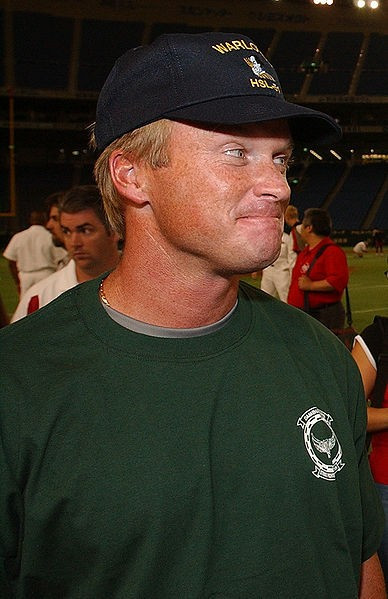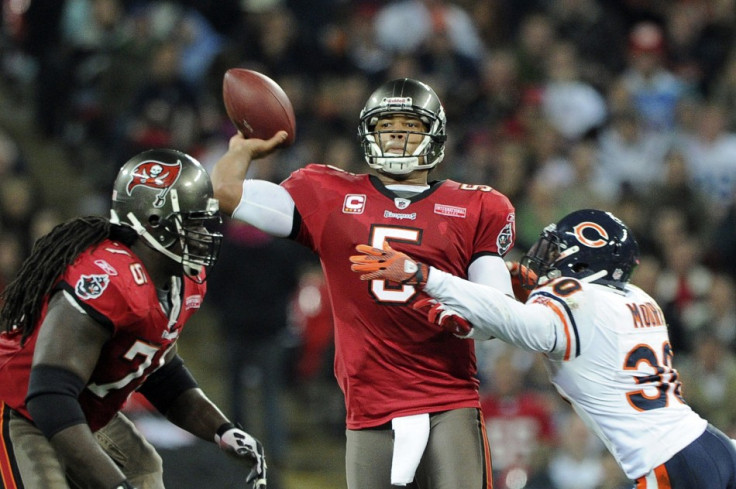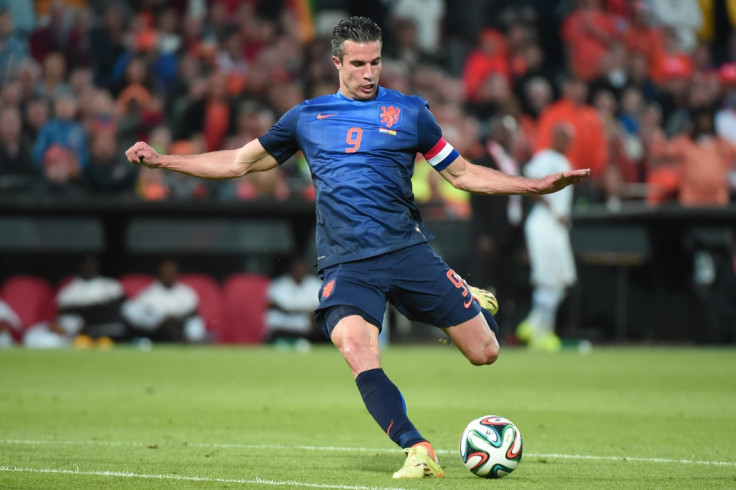Manchester United Owners the Glazers are Hated in Salford - but Adored in Tampa Bay

As Manchester United's summer lurches from one transfer disaster to another, the knives are once again out for the club's owners. In fact, right now the Glazers are probably as reviled at Old Trafford as Alan Shearer or Steven Gerrard.
Fans believe United's wretched form last season, and their disappointing start to this one, is down to years of under-investment by the owners, who have siphoned the club's profits into debt repayments rather than superstar transfers. In addition, many attribute the recent transfer shambles to the Glazers' decision to appoint David Moyes and Ed Woodward two men unproven at the highest level, to the two highest positions at the club last summer. The owners are widely derided as faceless capitalists who have done nothing but drain cash, raise admission prices and turn the club into a cash dispenser.
Yet in western Florida, home of the Glazers' other sports team, the Tampa Bay Buccaneers, the view towards the family is very different. In fact it appears they are viewed as generous and far-sighted, both for the way they have revitalised the Bucs since buying the team in 1996, and for the relentless charity work they have done in the local community.
Nicholas Houllis, a Bucs historian and blogger renowned in the local fan community, was unequivocal in his praise when interviewed on the subject by IBTimes UK. He told us: "Malcolm Glazer is considered a hero here in Tampa Bay, his charities for children are enormous. And the Glazers are excellent sports owners, they are very competitive, and they have a strong desire to win.
"Personally I feel the exact opposite of Malcolm Glazer than many United fans, because he 'saved' my franchise, in the mid 90s, when other buyers were thinking of purchasing the team and moving it."
According to Houllis, the hate figure among Bucs fans is actually the previous owner, Hugh Culverhouse, who "never spent money on the team, ever, but claimed to be poor and wanted to move games to nearby Orlando, because fans never sold out the stadium. When he passed, he left no deal that the team should be kept in Tampa.
"The Glazers paid $190 million for a team that Culverhouse spent $16 million on. And the Glazers walked into a mess. The Culverhouse regime had run the organization on the cheap, the team had horrible headquarters,they crammed assistant coaches in closets for offices."
The vision
One of the Glazers' first big calls was to fire the incumbent coach and hire Tony Dungy, one of the first African-Americans ever to take charge of an NFL team. In 2002 he was replaced by John Gruden, who promptly guided the Bucs to victory in the Super Bowl – the only time they have ever won the NFL's biggest prize.

Houllis believes the appointments of both Dungy and Gruden were timely and hugely beneficial, saying: "Dungy was bypassed for way too long, and it was a great choice. He laid the foundation down on how to be winners. He was too much about defence though, so the Glazers fired him and hired Jon Gruden, known as an offensive coach. The offence was re-tooled and allowed the team to get hot at the right time en route to the Super Bowl."
Another of the Glazers' key early decisions was to build the Bucs a new home, the Raymond James Stadium. This move brought controversy; the 2005 edition of Panorama which chronicled the Glazers, following their takeover of United, zeroed in on the fact that they had made Tampa taxpayers foot the bill for the new arena.
However Houllis feels the degree of local opposition has been overplayed, saying: "Some people did [get annoyed] understandably, but was it a big deal? The old Tampa Stadium simply could not generate the revenue for a competitive team, and Bucs fans understood that a new stadium was needed.
"Remember, the Bucs were a losing team when the voters approved the stadium tax, and there had been the threat of moving to Orlando. We knew Tampa with football was better than Tampa without football."
While the Glazers have been pilloried for jacking up ticket prices for United fans, Houllis says the opposite has been true in Tampa.
"They have lowered ticket prices in the upper decks, made it easier to get tickets, you can make payments over a full year on season tickets. And when the club was been threatened with a blackout [a law which decrees that games which do not sell out cannot be shown on TV], the owners have intevened. Twice, in 2009 and in 2013, they purchased all remaining tickets so all the games could be broadcast for fans on local TV, then distributed the tickets for free to charities."
On the pitch
Just as at Old Trafford, the Glazers have recently been criticised in Tampa their appointment of senior on-field staff. Moyes' US equivalent was a man called Greg Schiano, who in 2012 was plucked from the relative obscurity of college football, where he had guided a small institution called Rutgers to modest success, without winning trophies. United fans will be sure to spot the parallels.

Schiano missed out on the play-offs in his first season, and was relieved of his duties last December, midway through his second term. Houllis admits that Schiano, like Moyes at United, fell out with some key players such as star quarterback Josh Freeman, and describes him as a micro-manager who was "not a good coach for grown men."
However Houllis does not view Schiano with the sort of contempt in which United fans hold Moyes, saying he "is considered an excellent college coach, and throughout the history of the NFL, some college coaches can make it, others cannot. He wasn't the first college coach to fail, and he won't be the last.
"You should also look at the reaction. Schiano didn't work out so the owners went out and hired Lovie Smith, a Super Bowl coach who got his start here in Tampa when the Glazers first came here with Tony Dungy. Lovie is a fan favourite and will probably put the team back in winning form."
And what about player signings, the biggest area of concern for United fans? Well, here it gets really interesting, because the recent spending patterns of both United and Tampa Bay are almost identical.

Just like United, Tampa Bay went several years without big-name signings and began getting restless. Yet in 2012, the year the Glazers finally loosened the United purse strings to sign Robin Van Persie and Shinji Kagawa, Bucs fans were also reacquainted with the giddy thrill of a superstar splurge.
Houllis explains: "We experienced disappointment during the era of the economic downturn, 2007-2011. No money was spent on 'free agents', star football players who can now change teams to the highest bidders. And unlike United, we didn't even keep winning during this period, so the fans were not happy with the Glazers.
"People called them cheap, and even said the sons were a disgrace to their father's name. We felt they cared more about British than American football! On both sides of the Atlantic, we were blaming each other.
"But the truth is, it was the economy that had everything to do with that strategy; the Glazers bought United, and then the economy tanked. I would not be surprised to hear that their family fortune was probably in danger at some point.
"Starting in 2012 the Glazers started to invest heavily in the team. Two years ago we attracted Darrel Revis, considered the best corner in the NFL. We paid him $16 million a year – we over-paid actually, so much so Lovie has let him go because we could sign five good players for the same money. The Glazers have shown over the past two years they're committed to bringing winning football back to Tampa Bay."
'No reason to suggest they're driven by money'
Perhaps even more intriguing for United fans is the Glazers' interaction with the wider community. Whereas in Manchester they are viewed as reclusive vultures whose only intention is to leech money from wherever they can find it, Houllis says that, in Tampa, they are revered for their benevolence.
"I've seen nothing from the Glazers that show me their main interest is just money. In fact the Glazer Family Foundation has given money to over 150 charities; some very real lives are being and will be affected positively by them. The Glazer Children's museum here in Tampa is a magnificent example of their philanthropy.
"And we've seen all kinds of nice little touches. In 2009 they flew all surviving members of the 1979 team, the first Bucs team to go to the playoffs, in for the weekend to celebrate the event. Spared no expense. The last two years, our star players from the 90s and 2000s have been voted into the Hall of Fame, so the Glazers paid for an entourage of press and family to fly to the ceremony. I've even got my own story; two of the sons came up to us at a game and upgraded us to the $500 seats, for free."
Houllis's defence of the Glazers comes with several caveats. While an influential Bucs fan, he is not representative of the team's entire fanbase; there may well be dissenters in Tampa every bit as staunch as those in Manchester. There are clear differences between the Premier League and the NFL, which doesn't permit financial transactions for players and allows the weakest teams to pick the most promising youngsters each season. And Houllis has not been forced to endure some of the Glazers' most egregious policies at United, including the automatic cup scheme which forces fans to buy tickets for meaningless games in the lesser competitions.
Yet, as the Glazer-bashing continues unabated in Manchester, perhaps the view from across the pond will give some fans reason for optimism as they approach the most crucial season in the club's recent history.
Nicholas Houllis edits a fan blog called BucStop, which can be found here. You can also find him on Twitter by clicking here.
© Copyright IBTimes 2025. All rights reserved.





















